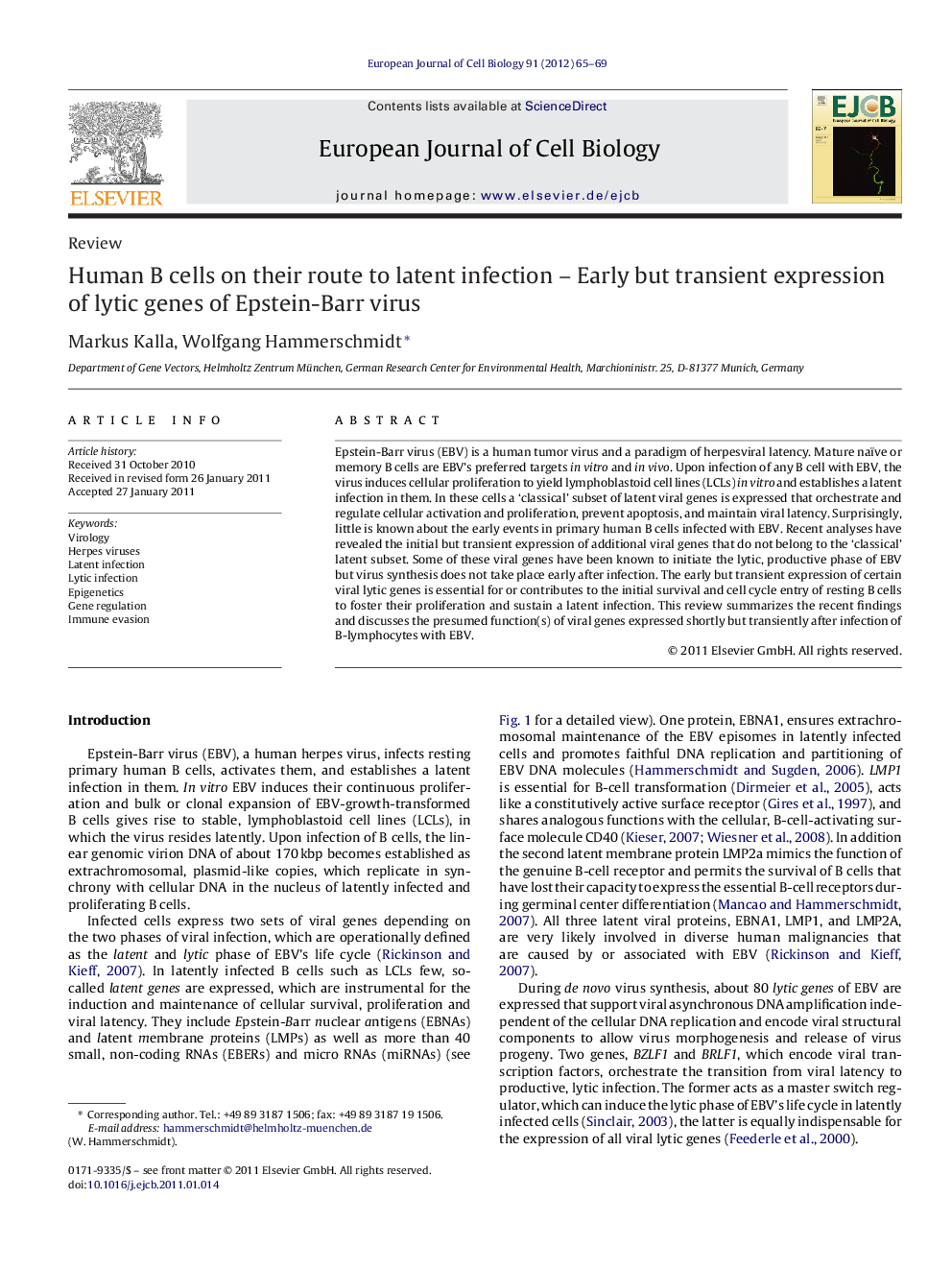| Article ID | Journal | Published Year | Pages | File Type |
|---|---|---|---|---|
| 2178398 | European Journal of Cell Biology | 2012 | 5 Pages |
Abstract
Epstein-Barr virus (EBV) is a human tumor virus and a paradigm of herpesviral latency. Mature naïve or memory B cells are EBV's preferred targets in vitro and in vivo. Upon infection of any B cell with EBV, the virus induces cellular proliferation to yield lymphoblastoid cell lines (LCLs) in vitro and establishes a latent infection in them. In these cells a 'classical' subset of latent viral genes is expressed that orchestrate and regulate cellular activation and proliferation, prevent apoptosis, and maintain viral latency. Surprisingly, little is known about the early events in primary human B cells infected with EBV. Recent analyses have revealed the initial but transient expression of additional viral genes that do not belong to the 'classical' latent subset. Some of these viral genes have been known to initiate the lytic, productive phase of EBV but virus synthesis does not take place early after infection. The early but transient expression of certain viral lytic genes is essential for or contributes to the initial survival and cell cycle entry of resting B cells to foster their proliferation and sustain a latent infection. This review summarizes the recent findings and discusses the presumed function(s) of viral genes expressed shortly but transiently after infection of B-lymphocytes with EBV.
Keywords
Related Topics
Life Sciences
Agricultural and Biological Sciences
Plant Science
Authors
Markus Kalla, Wolfgang Hammerschmidt,
